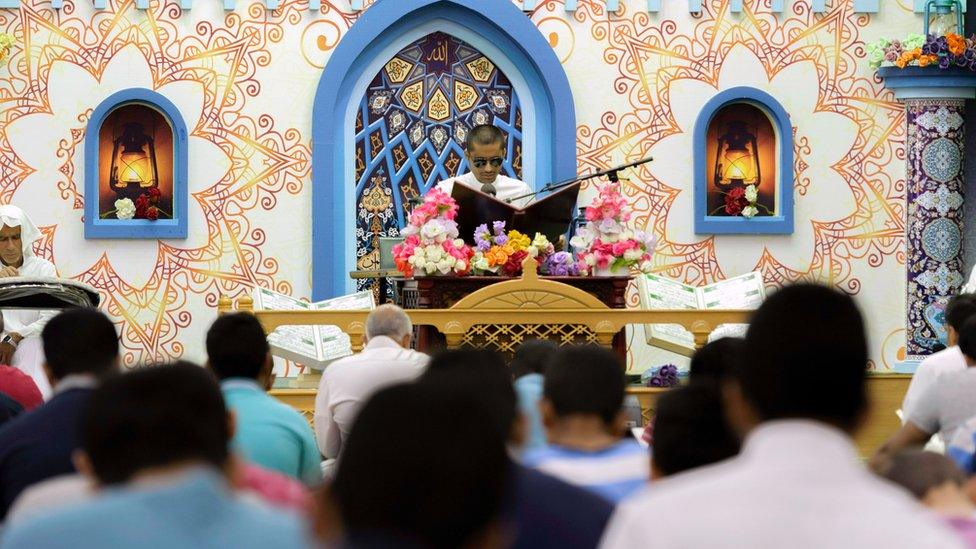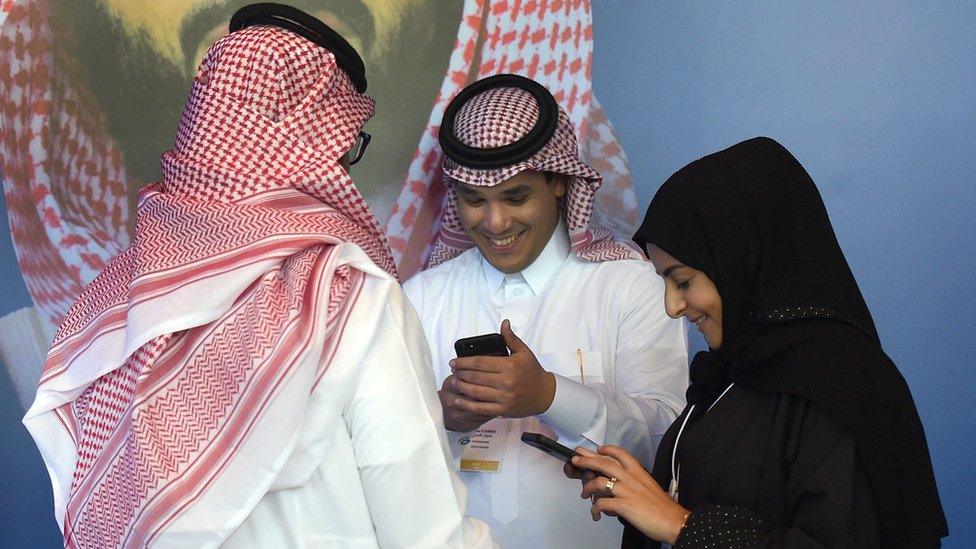Saudi Arabia develops ‘rate my sermon’ app
- Published

Saudi authorities are promoting an image of "moderate Islam"
Authorities in Saudi Arabia are developing a phone app which will monitor sermons and prayers in mosques to allow worshippers to know if the preacher is likely to go on too long.
According to the country's Minister of Islamic Affairs, Abdul Latif Al-Sheikh, the application will allow for the monitoring of mosques, with the length and quality of sermons "assessed by the minute and second", external, Saudi newspaper Al-Watan reports.
It's not made entirely clear who exactly will be doing the monitoring, but it's thought that regular mosque-goers will be able to rate their preacher on a number of aspects of their work.
Saudi Arabia is currently mulling the reform of religious teachings, and there's been debate on unifying the content of sermons to steer people away from "foreign, partisan or Muslim Brotherhood" thought.
The minister said that religion "is not a field to tamper with people's minds, nor should it compromise the security and stability of this blessed country".
The Muslim Brotherhood was declared a terrorist organisation by the Saudi authorities in 2014.

Saudis are now able to rate a whole series of public services via their mobiles
Toward a more liberal society?
The sermon-rating app comes days after the launch of another mobile phone application, external in which Saudi citizens are able to rate any government service from healthcare to sports and recreation, the Sabq online newspaper reports.
The Watani app is touted as, external "a mobile application that enables citizens, residents and visitors to evaluate public services, rate their satisfaction level, and contribute to the ongoing efforts focused on improving public services".
It seems possible that users of the map-based app will be able to rate its own operator, the National Centre for Measuring the Performance of Public Agencies, as part of a national data-gathering programme to "help decision-makers come to the right choices".
The current reforms in Saudi Arabia seem to be driven by Crown Prince Mohammed bin Salman, whose plans to change the kingdom involve a reported return to "moderate Islam" and a gradual liberalisation of society.
However, Riyadh this week said it was expelling Canada's ambassador and freezing trade ties after Ottawa called for the release of human rights activists in the kingdom.
Reporting by Abdirahim Saeed and Alistair Coleman
Next story: Gifts for travellers who hand in old suitcases
Use #NewsfromElsewhere to stay up-to-date with our reports via Twitter, external.